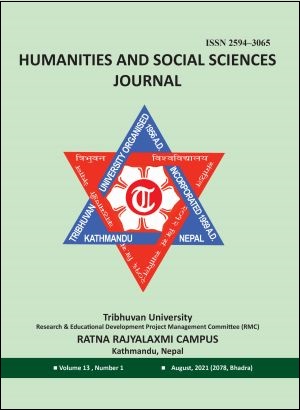Women’s Empowerment in Household Decision-making among the Poor and Non-poor in Nepal
DOI:
https://doi.org/10.3126/hssj.v13i1.44563Keywords:
empowerment, household decision-making, poor, non-poorAbstract
Women empowerment is taken as one of the major agenda for the twenty-first century in national and international development issues. The primary objective of this study is to examine the factors associated with women empowerment in household decision-making among poor and non-poor women in Nepal. This study uses data from the 2016 Nepal Demographic and Health Survey. The analytic sample size of this study is 9575 currently married women aged 15-49. Bivariate and multivariate logistic regression was used to examine the effect of demographic and socio-economic variables on women empowerment in household decision-making. The analysis of the result showed there is a significantly high variation between empowerment status and demographic and socio-economic background among the poor and non-poor. Women who have more children, older age, working women, and residing in urban areas were significant association and more likely to empower in household decision-making than having no children, young age and not working women among both poor and non-poor household wealth. However, women have significantly more decision-making power among non-educated women to compare with educated among poor; it is a quite inverse result among non-poor. Thus, this study suggests that it needs to identify and explore the pertinent issues with genuine reasons of the gap to be empowered in a variety of groups of population in Nepal.




